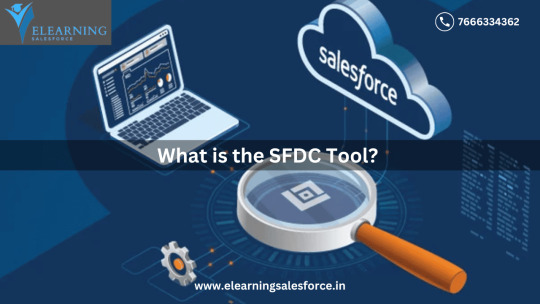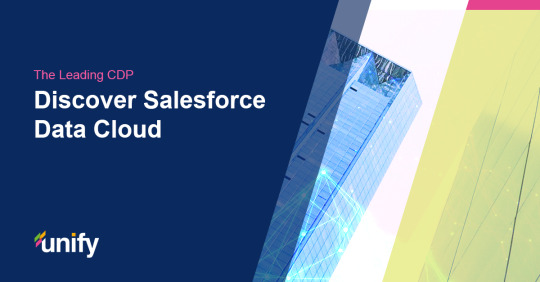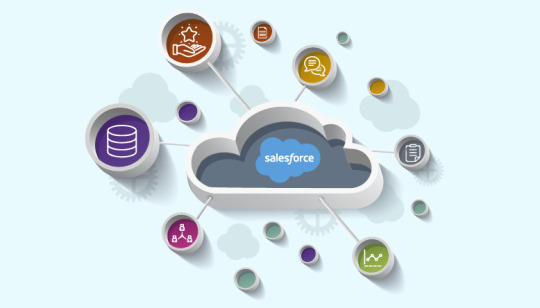#sfdc
Explore tagged Tumblr posts
Text
Going Home
By sfdc
Future fic: Featuring Brittana and their three teenagers and other glee clubbers, just focusing on Brittana . It's summer and they decide to bring their kids to Lima for a glee club reunion.
Rated: Fiction T
Genre: Romance/Humor
Pairing: Brittany P., Santana L.
Status: Complete
Chapters: 33
Words: 65,438
Published: Jul 7, 2011
Updated: Jan 21, 2012
#Going Home#By sfdc#sfdc#santana lopez#brittany s pierce#brittany s. pierce#brittana fanfiction#brittana#brittana fanfic#fanfic#fanfiction#glee
5 notes
·
View notes
Text
Are you Looking Salesforce Data Migration Services In India, USA

Availability of data across CRMs is essential for all business tools to function at their full potential. We are providers of complete Data migration services in India. Our Salesforce data migration services are secure, seamless, reliable and are customized to meet your specific needs. As a leading Salesforce data migration service provider in India, we ensure the smooth transfer of data from your legacy systems to Salesforce, maintaining accuracy and integrity throughout the process. Depending on the complexity, we follow best practices using native tools like APEX Data Loader for straightforward migrations or ETL tools such as Data Loader.io, Informatica Cloud, Jitterbit, IBM DataStage, Pervasive and Boomi for more advanced requirements. Our experts for Salesforce data migration services in India and Salesforce data migration services in the USA are trained to assist you with data extraction and transformation from any existing legacy system such as SugarCRM, SalesforceIQ, Microsoft Dynamics CRM, Siebel and existing data sources such as MS SQL Server, Oracle Database, Flat Files, MS Access etc. as well as from Salesforce.com. Additionally, we provide Data processing services in USA, that ensures the migration and smooth processing of your data across multiple business platforms.
Let's connect: https://www.kandisatech.com/service/data-migration
#Salesforce#DataMigration#BusinessGrowth#SalesforceDataMigration#salescloud#sfdc#salesforcelearning#CRM#salesforceconsultant#salesforcedevelopers#salesforcepartner#india#usa
0 notes
Text
Supercharge Your Sales: Building a High-Performance Salesforce Org with Aptimized
In the fast-paced world of sales, staying ahead means embracing tools that streamline operations and drive results. Enter Salesforce (SFDC) — a powerhouse CRM platform designed to revolutionize your sales processes. But technology alone isn't the silver bullet; it's about how you implement and leverage it. That's where Aptimized steps in.
Why Launch a New Sales Org with Salesforce?
Starting fresh with Salesforce offers a unique opportunity to:
Streamline Sales Management: From lead tracking to opportunity management, Salesforce centralizes your sales activities, providing a clear view of your pipeline.
Customize Dashboards: Tailor your dashboards to reflect key performance indicators that matter most to your business.
Automate Routine Tasks: Reduce manual workloads with automation, allowing your sales team to focus on closing deals.
Scale with Ease: As your business grows, Salesforce adapts, ensuring your sales processes remain efficient and effective.
Aptimized's Proven Approach to Salesforce Implementation
At Aptimized, we understand that every business is unique. Our implementation strategy is designed to align Salesforce with your specific goals:
1. Strategic Planning & Discovery
Needs Assessment: We delve deep into your sales strategy to identify challenges and opportunities.
Process Mapping: Analyzing your current workflows helps us pinpoint areas for improvement.
Goal Setting: We establish clear KPIs to measure the success of your new sales org.
2. Custom Configuration
Sales Cloud Optimization: We tailor Salesforce features to match your sales processes.
Automation Implementation: From lead scoring to follow-ups, we automate tasks to enhance efficiency.
Custom Reporting: Gain real-time insights with reports designed to inform strategic decisions.
3. Data Migration & Integration
Secure Data Transfer: We ensure a smooth transition of your existing data into Salesforce.
System Integration: Salesforce is connected with your existing tools, creating a cohesive tech ecosystem.
Validation: Post-migration, we verify data accuracy to maintain integrity.
4. Training & Change Management
End-User Training: We equip your team with the knowledge to utilize Salesforce effectively.
Documentation: Comprehensive guides support ongoing learning and reference.
Ongoing Support: Our team remains available to assist with any post-implementation needs.
The Aptimized Advantage
Choosing Aptimized means partnering with experts who are committed to your success. Our deep understanding of sales processes, combined with technical proficiency, ensures your Salesforce implementation is not just functional but transformative.
Ready to elevate your sales organization? Contact Aptimized today to begin your journey towards a more efficient, data-driven sales future.
0 notes
Text
𝐅𝐨𝐫𝐦𝐮𝐥𝐚 𝐎𝐩𝐞𝐫𝐚𝐭𝐨𝐫𝐬 & 𝐅𝐮𝐧𝐜𝐭𝐢𝐨𝐧𝐬 𝐢𝐧 𝐒𝐚𝐥𝐞𝐬𝐟𝐨𝐫𝐜𝐞!
🚀 Supercharge Your Salesforce Skills! 🚀 Unlock the magic of 𝐅𝐨𝐫𝐦𝐮𝐥𝐚 𝐎𝐩𝐞𝐫𝐚𝐭𝐨𝐫𝐬 & 𝐅𝐮𝐧𝐜𝐭𝐢𝐨𝐧𝐬 𝐢𝐧 𝐒𝐚𝐥𝐞𝐬𝐟𝐨𝐫𝐜𝐞! ✨ Automate workflows ✅ Boost data accuracy 📊 Make smarter decisions 💡
Master the formulas that power your CRM success! 👇 𝐂𝐥𝐢𝐜𝐤 𝐭𝐡𝐞 𝐜𝐨𝐦𝐦𝐞𝐧𝐭𝐬 𝐟𝐨𝐫 𝐩𝐫𝐨 𝐭𝐢𝐩𝐬 & 𝐝𝐞𝐞𝐩𝐞𝐫 𝐢𝐧𝐬𝐢𝐠𝐡𝐭𝐬! 👇

#Salesforce#SalesforceAdmin#CRMTools#AutomationMagic#Trailblazer#SFDC#CloudSolutions#FormulaMastery#NoCodePower#DataDriven
1 note
·
View note
Text
Where to Find Your Salesforce Organization ID

New to Salesforce and wondering where to find your Organization ID? Whether you’re setting up integrations, raising a support case, or simply verifying your org details — the Organization ID is a key identifier for your Salesforce instance.
In this quick guide, we show you step-by-step how to locate your Org ID in Salesforce, with screenshots and tips to ensure you never miss it again.
🔹 Navigate with ease 🔹 Know why the Org ID is important 🔹 Learn how to copy it safely
Perfect for admins, developers, and Salesforce beginners alike!
#lessCopyEdit#Salesforce#SalesforceAdmin#SalesforceTips#SalesforceDevelopment#SalesforceBeginners#OrgID#SalesforceOrgID#CRM#CloudComputing#SalesforceHelp#SalesforceSupport#SFDC#SalesforceGuide
0 notes
Text
What is the SFDC Tool?
SFDC (Salesforce.com) is a cloud-based CRM (Customer Relationship Management) tool designed to help businesses manage customer relationships and sales operations. It offers a suite of applications for marketing automation, sales tracking, customer support, and analytics. SFDC also provides tools for custom development, integration with third-party apps, and data management, enabling organizations to streamline operations and improve customer experience.

#SFDC#Salesforce#CRM#CloudComputing#SalesforceTool#CustomerRelationshipManagement#SalesforceCRM#TechTools#BusinessAutomation
0 notes
Text
Build Marketing Proposals With Salesforce Marketing Cloud
Crafting compelling marketing proposals that capture your audiences is crucial for your business’s success. Salesforce Marketing Cloud is the game-changing platform that can make all the difference for your marketing team to build, execute, and optimize campaigns with precision. Offering data-driven insights, personalized customer journeys, and dynamic content delivery all using one interface.…
#effective marketing proposal in sfmc#marketing cloud project proposal#marketing proposal#marketing proposal for marketing cloud project#marketing proposal for salesforce marketing cloud project#marketing proposal for salesforce project#Salesforce blog#salesforce marketing cloud#Salesforce marketing cloud proposal#sfdc#sfdc fan boy#sfdc fanboy#sfdcFanBoy#sfmc proposal
0 notes
Text

94% of businesses believe they can extract more value from their data. Discover how @Salesforce Data Cloud makes this easy, offering actionable insights that help businesses achieve their goals. Learn why Data Cloud is leading the #CDP field: https://unify.agency/what-is-salesforce-data-cloud/
0 notes
Text
Dynamically Instantiate Components in LWC
We include many modules in the Lightning Web component to accomplish business requirements. These modules can take a longer time when the component is loaded on the page. This can lead to a performance issue on the Salesforce record page. Dynamic component instantiation can help us avoid loading huge modules. We can also instantiate a component instance even if the underlying component constructor isn’t known until runtime. Dynamic import is an easy way to make a component more adaptable.

Steps for dynamic instantiation are as below
Enable LWC for Dynamic Instantiate
Using Dynamic Component
Check out the complete details here Dynamically Instantiate Components in LWC
0 notes
Text
Custom SFDC development for a Solar energy Company

Discover how Cymetrix Software, a leading Salesforce Consulting partner in India, developed a custom SFDC application for a solar energy company in India to gain a consolidated view of their leads and contacts.
Here are the results our client experienced:
1. Enhances visibility for each opportunity 2. Better use of the data to make informed business decisions 3. Increased processing efficiency and improved customer engagement To learn more, we suggest you check out the full case study.
0 notes
Text
Do You Need Coding Skills to Become a Salesforce Administrator?

If you’ve been searching for tech jobs, you’ve likely heard of Salesforce, a robust Customer Relationship Management (CRM) platform companies use worldwide. One of the hottest roles in this space is Salesforce Administrator. However, one question often asked by freshers is, “Should I learn coding to become a Salesforce Admin?
Let’s simplify it and break it down.
The Short Answer: No, You Don’t Need to Code!
That's right. It does not require coding skills to become a successful Salesforce Administrator. One of the key reasons why this role is so attractive for technical and non-technical professionals alike. If you excel in organizing data, solving business problems, and managing systems, you will get close in no time.
Salesforce is built with usability in mind, and many Salesforce Admins use point-and-click tools and do not write lines of code. They let you automate tasks, make reports, manage users, and build workflows, all without writing a line of code.
So, What Does a Salesforce Admin Really Do?
Consider a Salesforce Admin as the backbone of a company’s Salesforce system. Here’s what the job typically entails:
Managing users and their authorizations
Designing reports and dashboards for various teams
Intermediary: Automation through Flows, Process Builder, etc.
Tailoring the Salesforce platform to suit business requirements
Cleaning, securing, and bringing order to data
You could learn all these things with the proper training, and again, you don’t have to code.
What If You Want to Learn Coding?
Suppose you’re curious about coding or want to evolve into more technical roles in the coming years. In that case, learning a bit of code (Apex, Salesforce’s programming language, particularly) will be a “door opener” for you. However, this is optional for entrance-level Admin roles.
Most people start with an Admin and later move on to Salesforce Developers or Architects. Thus, coding is not required to start, but that ‘mindset of learning continuously’ will serve you in the long run.
Where Can You Learn the Skills to Become a Salesforce Admin?
If you’re serious about entering the field, you can join a course structured around specific learning objectives, such as the Salesforce Admin Certification Course by LearnKarts on Coursera.
This is the best Salesforce Administrator Certification course for beginners. It guides you through everything from the fundamentals of CRM to mastering Salesforce tools and much more leading up to the official certification exam. You will practice in hands-on experience, learn real-time scenarios, and gain the confidence you need to embark on a role as a Salesforce Admin.
This Salesforce Administrator Course includes the following:
Beginner-friendly content
Salesforce practice in real-time environment
Tailored, step-by-step guidance on how to study for the certification exam
Learn from industry experts
Why This Role Is the Right Career Move for You?
There is significant demand for Salesforce Admins. Salesforce is used for customer data management by businesses of every size—from startups to global enterprises—requiring skilled Admins to keep things running like a well-oiled machine. Some of the factors why people choose this career trajectory consist of:
Great salary potential
Remote work opportunities
Room for career growth
No technical degree is required
An opportunity to work with sectors such as health care, finance, retail, and others
As the Salesforce expands, the need for certified Admins is only increasing.
Final Thoughts:
To wrap it up: No, you don't need coding skills to become a Salesforce Administrator. All you need is a willingness to learn, an interest in solving business problems, and a good training program to guide you.
If you want to make a smart career move without diving into the world of code, check out the Salesforce Admin Certification Course by LearnKarts on Coursera. It's one of the best ways to get started, build skills, and become certified.
So go ahead—take the leap. Becoming a certified Salesforce Administrator could be just a few clicks away!
#Salesforce Admin Certification Course#salesforce administrator certification#salesforce administrator course#sfdc administrator certification#Salesforce admin course#Coursera salesforce admin
0 notes
Text
What is Salesforce Marketing Cloud Training Courses?
Salesforce has revolutionized the way businesses engage with customers. With its diverse offerings, one of the standout tools in its portfolio is the Salesforce Marketing Cloud. It’s a powerful platform designed to help marketers connect with customers across multiple channels. But mastering the intricacies of this platform requires the right guidance, which is where Salesforce Marketing Cloud training comes in.
In this blog post, we’ll dive deep into what Salesforce Marketing Cloud training courses entail, the importance of taking them, and how they can benefit professionals who want to become experts in Salesforce Marketing Cloud. We’ll explore what these courses cover, how they’re structured, and what you can expect from a Salesforce online course.
Introduction: Why Salesforce Marketing Cloud Training?
In today’s highly competitive and fast-paced digital world, customer engagement is key to a business’s success. Marketing automation is no longer a luxury but a necessity. Salesforce Marketing Cloud allows businesses to tailor personalized experiences and campaigns for their customers, leveraging powerful tools like email marketing, social media, mobile messaging, and more.
To use these tools effectively, professionals need training that not only explains the theory behind digital marketing but also demonstrates how to implement strategies using Salesforce Marketing Cloud. Whether you are looking to become a Salesforce Administrator or gain in-depth knowledge of marketing strategies, taking a Salesforce online course can help you stand out in the marketplace.
What is Salesforce Marketing Cloud?
Salesforce Marketing Cloud is a comprehensive platform that enables businesses to deliver a unified customer experience. It combines email, social media, and advertising capabilities with data insights and automation to create personalized journeys for customers. With Salesforce Marketing Cloud, businesses can:
Automate marketing campaigns across different channels.
Track and analyze customer data to personalize their marketing.
Segment audiences for targeted messaging.
Measure campaign performance and optimize for better results.
The cloud-based platform offers tools for email marketing, content creation, data management, analytics, and more. However, with such a broad range of features, it can be overwhelming for individuals without proper training.
Why Should You Take Salesforce Marketing Cloud Training?

Salesforce Marketing Cloud is a sophisticated platform, and mastering it requires a blend of technical know-how and marketing expertise. This is where Salesforce classes online come into play. Here are some reasons why taking a Salesforce Marketing Cloud training course is essential:
Stay Ahead of the Competition: As digital marketing evolves, staying up to date with new trends, tools, and platforms is crucial. Salesforce Marketing Cloud is a leader in the field, and those who know how to use it effectively are in high demand.
Hands-On Learning: Salesforce Marketing Cloud training provides practical, hands-on experience, allowing you to work with real data and campaigns. You will learn how to manage complex marketing strategies, analyze data, and create compelling customer journeys.
Boost Your Career Prospects: A certification in Salesforce Marketing Cloud can open doors to new career opportunities. As companies continue to embrace digital marketing and automation, the demand for professionals with Salesforce expertise is growing.
Master Advanced Features: Training courses cover advanced features such as Journey Builder, Email Studio, Mobile Studio, and Social Studio. These tools help marketers create dynamic campaigns that engage customers in real-time.
Structure of Salesforce Marketing Cloud Training Courses
Salesforce Marketing Cloud training courses are designed to take you through the platform’s features step-by-step, ensuring you understand both the theory and practical application. The curriculum typically covers:
Introduction to Salesforce Marketing Cloud:
Overview of the platform.
Key features and capabilities.
Navigating the user interface.
Email Marketing:
Building email campaigns.
List management and segmentation.
Using templates and content blocks.
Testing and optimization.
Journey Builder:
Creating and automating customer journeys.
Multi-step workflows.
Personalizing customer experiences.
Data Management:
Working with data extensions.
Importing and exporting data.
Integrating Salesforce CRM with Marketing Cloud.
Social Media Marketing:
Social Studio overview.
Social listening and engagement.
Creating social media campaigns.
Analytics and Reporting:
Tracking campaign performance.
Creating custom reports.
Using insights to refine marketing strategies.
Advanced Features:
SMS and push notifications.
Mobile Studio.
Personalization strategies.
Salesforce Admin Course for Marketing Cloud:
Understanding the admin role.
Configuration and setup.
Security and access control.
Integration with other Salesforce products.
What to Expect from a Salesforce Marketing Cloud Online Course
When you enroll in a Salesforce online course, you can expect a well-structured, comprehensive curriculum designed to provide you with the necessary knowledge and hands-on experience. Let’s break down what these courses typically offer:
Live Instructor-Led Classes: Some courses offer instructor-led sessions that allow you to interact with experienced trainers, ask questions, and get real-time feedback. This is particularly useful for gaining a deeper understanding of complex topics.
On-Demand Learning: If you prefer to learn at your own pace, many courses provide on-demand modules that you can access at any time. This flexibility is ideal for working professionals who have busy schedules.
Practical Exercises: Expect a lot of practical exercises where you can apply what you’ve learned. Whether it’s building an email campaign or analyzing data, these hands-on activities help reinforce theoretical knowledge.
Real-World Examples: Salesforce Marketing Cloud training courses often include case studies and industry examples. These real-world scenarios help you understand how to apply the platform’s tools in actual business settings.
Certification Preparation: Upon completing the course, many programs help you prepare for Salesforce Marketing Cloud certification. Earning a certification not only validates your skills but also enhances your credibility in the job market.
Who Should Take Salesforce Marketing Cloud Training?
Salesforce Marketing Cloud training is ideal for marketing professionals, digital marketers, Salesforce administrators, and anyone looking to enhance their skills in marketing automation and customer engagement. Some roles that can benefit from this training include:
Marketing Managers: Learn how to automate campaigns and optimize marketing strategies.
Salesforce Administrators: Expand your knowledge to manage Marketing Cloud features and integrations effectively.
Digital Marketers: Gain expertise in multi-channel marketing, customer journey mapping, and personalized campaigns.
Salesforce Consultants: Develop specialized skills in Salesforce Marketing Cloud to better assist clients in deploying marketing automation solutions.
How H2K Infosys Can Help You Master Salesforce Marketing Cloud
If you're looking to enroll in Salesforce administrator classes or gain more specialized training in Salesforce Marketing Cloud, H2K Infosys offers high-quality online training. Their Salesforce admin course and Marketing Cloud training modules are designed to give you comprehensive knowledge and real-world skills.
H2K Infosys instructors are experienced professionals who bring industry insights to the classroom, offering practical advice and guidance. Whether you want to become a Salesforce administrator or a digital marketer specializing in marketing automation, their training ensures that you are equipped with the skills to succeed.
The Importance of Hands-On Experience
One of the most valuable aspects of Salesforce online courses is the opportunity for hands-on learning. With practical experience, you can explore the platform’s features firsthand. Working on live projects, learning to configure and automate campaigns, and analyzing real-time data will solidify your understanding of Salesforce Marketing Cloud and its applications.
Conclusion: Why Salesforce Marketing Cloud Training Is Worth It
Salesforce Marketing Cloud training is an investment in your career that can open doors to new job opportunities and increase your value in the marketing and Salesforce ecosystem. By completing a Salesforce admin course or taking specialized Marketing Cloud training, you’ll gain the skills necessary to manage multi-channel campaigns, analyze customer data, and automate marketing processes.
H2K Infosys provides an excellent platform for Salesforce training, equipping you with the tools you need to excel in digital marketing and Salesforce administration. With real-world examples, live instructor-led classes, and hands-on learning, their courses ensure you’re prepared for success in today’s competitive job market.
Take your marketing career to the next level by enrolling in a Salesforce Marketing Cloud training course today!
Key Takeaways:
Salesforce Marketing Cloud is an essential tool for digital marketers and businesses looking to enhance customer engagement.
Training in Salesforce Marketing Cloud provides you with both theoretical and practical skills.
Hands-on experience, industry case studies, and certification preparation are key benefits of online training.
H2K Infosys offers comprehensive training to help you master Salesforce Marketing Cloud and succeed in your career.
By mastering Salesforce Marketing Cloud, you’ll be equipped with the skills to lead successful marketing strategies and create personalized customer experiences that drive results.
0 notes
Text
Top Salesforce Implementation Partner In india, USA

Salesforce implementation is the most important aspect of Salesforce CRM services, as it can make or break your business success. With over six years of experience working with companies and clients of various sizes and industries, we are one of the top Salesforce implementation partners who provide end-to-end implementation services along with assistance. Our team comprises the best salesforce implementation partners who are trained to provide a number of services ranging from needs assessment, design planning, implementation, customization and integration. Our Salesforce implementation services cover
Kandisa Technologies is one of the best Salesforce Implementation companies with a goal to provide perfectly tailored Salesforce plans to help run your operations smoothly to result in business growth. With our team of professionals having expertise and experience in every sector of Salesforce, we are well-equipped to provide all round solutions for your business.
Let's Connect: https://www.kandisatech.com/service/salesforce-implementation
#salesforce partner#salesforce implementation partner#salesforce app development company#Business#salesforceregisteredpartners#crm#sfdc#salesforcedevelopers#india#usa
0 notes
Text
SFDC Partner: Unlocking Salesforce Success with Expertise and Innovation
In the digital era, businesses need robust tools to manage customer relationships, streamline processes, and drive growth. Salesforce, or SFDC (Salesforce.com), has emerged as a global leader in customer relationship management (CRM) software that enables organizations to engage with their customers more effectively. However, implementing and optimizing Salesforce solutions requires expertise and experience, which is where an SFDC partner comes into play. These partners provide specialized knowledge and resources in helping businesses unlock their potential in Salesforce, so a successful transformation is made possible.
What is an SFDC Partner?

SFDC partner refers to any of the following: consulting firm, system integrator, or independent software vendor, working hand in hand with Salesforce, to give businesses a solution that is customized in building on the Salesforce platform. These partners have been acknowledged by Salesforce for in-depth knowledge with respect to Salesforce products as well as the delivery of high quality services including implementations, customization, integration and ongoing support. SFDC partners become very crucial while integrating a business application system with existing applications, tailor specific solutions to their needs, and ensure long-term success with the platform.
There are four tiers of salesforce partners: Registered, Silver, Gold, and Platinum. An SFDC partner with a higher-tier designation, such as Platinum, is one that has proven expertise, a track record of successful projects, and a team of certified professionals. These partners are trusted to manage complex Salesforce implementations, ensuring businesses achieve the desired outcomes.
Why Choose an SFDC Partner?
Expertise and Experience: A partner to SFDC is very professional, bringing extensive expertise with certified professionals with experience in many aspects of Salesforce. It includes certified professionals for aspects like Sales Cloud, Service Cloud, Marketing Cloud, and more. They have years of experience working with businesses across different industries, guiding companies through the complexities of implementing and optimizing Salesforce.
Customized Solutions: Every business has a different need, and an SFDC partner understands that customized solutions are the key. Maybe a company needs to automate sales processes, enhance the workflow of customer service processes, or integrate the sales force with other business systems. An SFDC partner customizes the Salesforce platform as per the specific requirements of the business. This customization helps businesses maximize the capabilities of the platform.
Seamless Integration: Salesforce is predominantly used with other enterprise-level systems such as Enterprise Resource Planning (ERP), Financial software, and marketing automation tools. An SFDC partner ensures that Salesforce functions seamlessly with these systems of record, allowing businesses to access and leverage data across multiple platforms. This integration eliminates silos and creates a harmonized, streamlined workflow of productivity and decision-making activities.
Ongoing support and Optimization: Implementation is just a starting point. An SFDC partner ensures continued support so that Salesforce gets optimized when business needs change. They provide regular maintenance, training, and updates to maintain the proper functioning of the platform, ensuring companies are aligned with the best in features and innovations provided by Salesforce.
Accelerated Time to Value: Working with an SFDC partner accelerates the implementation process. Having much experience, these partners are aware of the best practices for deploying Salesforce in the most efficient and fastest ways possible, and so business organizations can start seeing value from the platform faster. Accelerated time to value contributes to the greater return on investment and longer ROI for an organization.
1 note
·
View note
Text
What is salesforce testing? its types and migration practices Learn about Salesforce testing, and its crucial role in ensuring software quality, and explore various testing types like functional, integration, and performance testing. Discover best practices for migrating Salesforce data and configurations while maintaining data integrity and minimizing downtime. Learn more in this article
#salesforce testing#salesforce migration testing#types of salesforce testing#salesforce data testing#salesforce migration process#salesforce testing tools#what is salesforce testing#sfdc performance testing
0 notes
Text
Unlocking the Future of Customer Relationship Management: SFDC Services at the Core

In today's fast-paced digital landscape, businesses across the globe are constantly evolving to stay ahead of their competition. One of the most critical aspects of this evolution is enhancing the way companies engage with their customers. Salesforce, often referred to by its original acronym SFDC (Salesforce Dot Com), has revolutionized customer relationship management (CRM), making it easier for businesses to connect, understand, and serve their customers.
In this blog, we will explore the trending SFDC services that are empowering businesses to streamline operations, enhance customer experiences, and drive growth.
The Importance of SFDC in Today's Business Landscape
Salesforce's extensive suite of cloud-based services goes beyond traditional CRM. It now encompasses everything from marketing automation to analytics, artificial intelligence (AI), and more. Salesforce has become the backbone of digital transformation initiatives, providing businesses with a unified platform that connects teams, data, and customer insights.
Whether you are in retail, finance, healthcare, or any other industry, SFDC services are helping businesses operate more efficiently while improving customer engagement and loyalty.
Trending SFDC Services in 2024
As Salesforce continues to innovate, several key services are gaining momentum and becoming essential for businesses looking to thrive in the digital age. Here are some of the most trending SFDC services in 2024:
1. Salesforce Einstein (AI-Powered Analytics)
Salesforce Einstein is an AI-driven tool that empowers businesses to gain deeper insights into customer behavior, automate routine tasks, and make data-driven decisions. With predictive analytics and machine learning built right into Salesforce, companies can deliver personalized customer experiences at scale. By integrating SFDC services like Einstein, businesses can streamline marketing campaigns, improve lead conversion rates, and increase sales through more precise targeting.
2. Salesforce Service Cloud
Providing exceptional customer service has never been more critical. The Salesforce Service Cloud enables companies to offer seamless support across multiple channels—whether it’s email, social media, live chat, or phone support. By leveraging SFDC services, businesses can reduce response times, provide faster resolutions, and keep customers satisfied. The ability to integrate AI-powered bots further enhances service delivery, ensuring customers get accurate answers quickly.
3. Salesforce Marketing Cloud
Marketing Cloud has become a game-changer for organizations aiming to optimize customer journeys. With this service, businesses can automate marketing activities, personalize customer interactions, and deliver relevant content at the right time. Integrating SFDC services like Marketing Cloud enables businesses to create omnichannel marketing strategies that improve engagement and foster brand loyalty.
4. Salesforce Commerce Cloud
E-commerce is booming, and businesses must keep pace with customer expectations. Salesforce Commerce Cloud allows companies to deliver seamless shopping experiences across both physical and digital channels. This SFDC service provides personalized shopping recommendations, mobile-first design, and powerful integrations that improve the overall customer experience. With Commerce Cloud, businesses can boost conversions and drive revenue growth.
5. Salesforce Experience Cloud
As businesses seek to create communities around their brands, the Experience Cloud offers a platform for building customized web portals and online communities. From customer portals to partner networks, SFDC services like Experience Cloud foster deeper collaboration and engagement, helping businesses enhance their relationships with customers, partners, and employees.
Why SFDC Services Are Vital for Modern Businesses
Seamless Integration: One of the key benefits of using SFDC services is the platform's ability to integrate with various third-party tools and systems. Whether you are using ERP software, social media management platforms, or other business applications, Salesforce ensures smooth data flow and collaboration.
Scalability: Salesforce services are highly scalable, allowing businesses to start small and grow without worrying about infrastructure limitations. As your business expands, SFDC services can adapt to meet increasing demands and customer expectations.
Automation and Efficiency: With SFDC, businesses can automate repetitive tasks such as lead management, email marketing, and customer service queries. This increases operational efficiency and frees up time for employees to focus on more strategic initiatives.
Personalization: SFDC services provide businesses with rich customer insights, enabling personalized interactions that drive higher engagement and loyalty. With Salesforce, you can deliver tailor-made marketing campaigns, product recommendations, and customer support experiences.
The Future of SFDC Services
Salesforce continues to innovate with new features and capabilities, expanding its ecosystem of services. As more businesses invest in digital transformation, the demand for SFDC services will only increase. Expect to see greater use of artificial intelligence, automation, and real-time analytics to shape customer experiences and drive business outcomes.
By staying ahead of the curve and leveraging the latest SFDC services, companies can ensure they remain competitive in an ever-evolving marketplace.
Conclusion
SFDC services are no longer just tools for managing customer data. They are strategic assets that help businesses innovate, optimize, and scale their operations. Whether you're looking to improve customer service, enhance marketing efforts, or create more personalized experiences, Salesforce has the tools you need to succeed. In 2024 and beyond, businesses that invest in SFDC services will be well-positioned to lead in their industries, driving growth and deepening customer relationships.
As the world of customer engagement continues to evolve, SFDC will remain at the forefront, providing businesses with the agility, intelligence, and insights they need to thrive.
0 notes